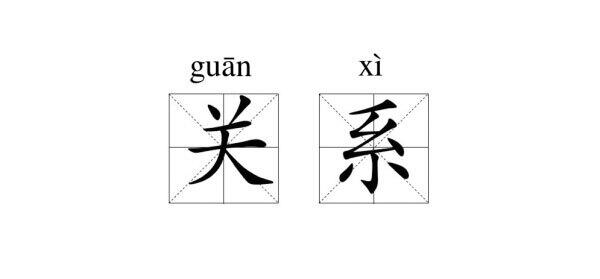
When it comes to doing business in China, I hear it said all time that it is all about one’s guanxi or contacts. I don’t disagree that contacts and connections are critical to nearly any venture in any place. But I do NOT think as a foreigner, an international brand or Western business, your ability to build, sustain and grow a business in China depends on one’s guanxi or Chinese-style network. It’s quite the opposite.
It’s not all about guanxi (at least in the Chinese sense) when it comes to building a business in China as a foreigner or international branding. Attempting to use this guanxi route is dangerous, unnecessary and may even lead to failure at times.
It’s pretty much undeniable that as a foreigner “You Ain’t Got No Guanxi” so instead, I recommend embracing a traditional approach to business development.

What is Guanxi?
Before we jump into why I disagree with many writers on applying guanxi to business development in China, let’s take a look at the meaning of this Chinese cultural concept first.
(Note: Wikipedia also a good description of this concept.)
The Chinese word “Guanxi 关系” literally means “relationships” as in who you know and your personal network of contacts, partners, friends, family, etc. In China, guanxi reflects more of a “cooperation” system, an interweaving of the social networks and influential relationships one uses to facilitate business, deals and, oftentimes, bring about favoritism.
Chinese often use the word guanxi to apply to their social status or a kind of political power since between traditional Chinese these relationships provide a back-and-forth method for getting what you want and then influencing others to get what they want. To have “guanxi” is equated with having power. Guanxi relationships are tied-up via reciprocal exchanges and mutual obligations.
Everyone says: It’s All About Guanxi for Business in China
A lot of Western media and anecdotal accounts tend to point to guanxi as the key to business and life success in China (reference 1, reference 2, reference 3, reference 4).
Indeed there tends to be this assumption that guanxi relationships and one’s network of influence can assist in the resolution of any range of problems, difficulties or challenges in China, whether personal or professional. Historically this seemed to be true in China, and there is still plenty of evidence of its continued existence in Chinese society between Chinese people.
Recently China’s President Xi Jinping has pushed to radically remove a level of “guanxi” and corruption in all government levels. I’d say he has largely been successful in removing much corruption in China.
Whether or not the government context has changed, I don’t really think guanxi is route foreign businesses should pursue in China.
Hey Foreigner, You Ain’t Got No Guanxi
The reality is that as a foreigner having guanxi is a pipe dream. You don’t got it and can’t get it.
You can only try to work with a Chinese colleague’s guanxi. This is dangerous. In particular, foreign businesses should be careful when you applying a strategy where you depend on a key Chinese partner and his or her guanxi as the main component for success.
Guanxi networks are extremely Chinese. Even if you speak Chinese and have Chinese friends, you will never quite fit in.
Quite simply: You Ain’t Got No Guanxi. So don’t waste your time on it.
If you do end up creating a business or project that depends on guanxi, you end up with all the power in the hands of your Chinese partners. That partner can easily take your business. Legally, using guanxi might mean you have “approval” but aren’t technically compliant with the law which can come back to hurt you later.
Don’t risk your business venture in China on guanxi or Chinese partners that say that can help you with it.
The Reality: Connections Matter but Aligned Partnership Are Developed rather than exchanged
Guanxi relationships and activities around it depend on exchanges. You can only real use guanxi if there are exchanges to be had.
Many foreign businesses in China, like mine, rarely have anything that can be exchanged. As such, guanxi doesn’t really work, and, for the reasons I previously mentioned, it’s likely an unreliable manner to reach your business objectives.
It’s not all about guanxi when it comes to building a Western-run business or developing your community in China. Attempting to use this route is dangerous, unnecessary and may even lead to failure at times.
Instead, I recommend embracing an approach of traditional business development where you build a basic rapport, before attempting to align values and needs and finally create a mutually beneficial deal.
Moreover with the decreasing prevalence of you-scratch-my-I-scratch-yours relationships with the Chinese government and with increasing of internet businesses guanxi has lost much of its edge.
So instead of trying to get a quick win via exchange-based, Chinese-style guanxi relationships, stick to the classic formula for a winning business in Asia: true partnerships. This starts first by building a basic rapport with a potential partner, then attempting to discover and align mutual values and needs and finally create a deal that benefits all.
